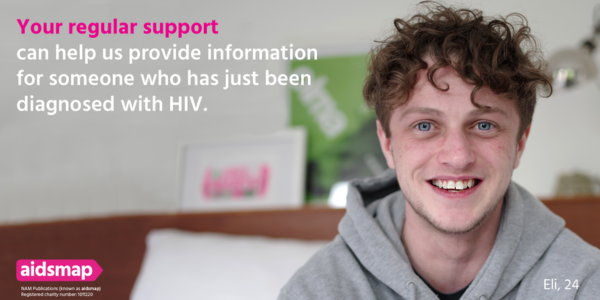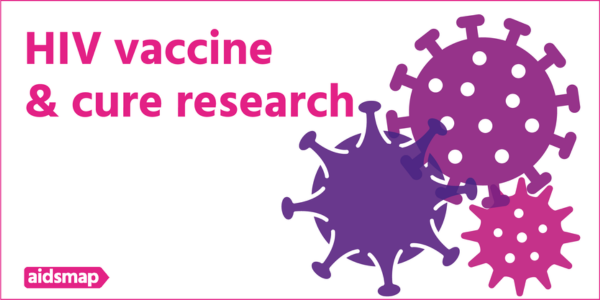News from aidsmap

No HIV infections seen in groundbreaking trial of twice-yearly injectable PrEP
It’s rare in any branch of medicine that a trial of a new drug can report 100% efficacy, and a first in HIV science. But that’s what happened last week, when Gilead Sciences announced that no HIV infections had been seen among 2134 young women and adolescent girls in South Africa and Uganda given twice-yearly injections of its innovative anti-HIV drug, lenacapavir, as PrEP, in its PURPOSE 1 study. But with such impressive results, there is pressure on Gilead to make the drug available quickly and cheaply.
Support for healthy eating improves health outcomes among people with HIV
A clinical trial has found that medically tailored meals and groceries, combined with nutritional education, can reduce hospitalisations and improve mental and physical health in people with HIV. However, the intervention did not yield any improvement in terms of unsuppressed viral load, according to the report in the Journal of Infectious Diseases.
Most liver disease in people with HIV in low and middle-income countries is caused by metabolic disorders
Metabolic disorders – including excess weight, obesity and diabetes – are significant causes of liver disease among people with HIV in lower- and middle-income countries, while hepatitis B and C play a minimal role, a study has revealed. As liver disease is a leading cause of morbidity and mortality in people living with HIV, these results raise concerns.
South Africa clinics pilot Undetectable equals Untransmittable app to support HIV counselling
After identifying significant knowledge gaps about ‘Undetectable = Untransmitable’ (U=U), scepticism about its effectiveness, and hesitancy to endorse it, researchers from the University of the Witwatersrand in South Africa collaborated with people living with HIV, clinicians, and scientific experts to develop an easy-to-use web-based app to support HIV counselling in primary healthcare settings in South Africa.

Muscle loss combined with excess fat frequently seen in Italian men with HIV
Muscle wasting coupled with abdominal obesity was present in around one in ten men under 50, with low bone mineral density also being common, a study of Italian men living with HIV has found. The study also found that low muscle mass and low bone mineral density were associated with low levels of the sex hormones testosterone and estradiol.
Medical circumcision reduces HIV risk for gay and bisexual men – but only for tops
Male medical circumcision reduced the risk of HIV acquisition by 91% in gay and bisexual men who predominantly took the insertive role in anal intercourse, a randomised study carried out in China has reported.
Children in Kenya and Uganda experiencing stock-outs of crucial HIV medicines like dolutegravir
Recommended medications were only available in 52% and 64% of Kenyan and Ugandan health facilities, according to a recent survey which assessed the availability of paediatric antiretroviral formulations across health facilities in the two countries.
Mothers living with HIV feel like there is no right choice when feeding their babies
When deciding how to feed their children after birth, women living with HIV in the UK face complex decisions due to contradicting guidelines from healthcare organisations. These women are more likely to be first- or second-generation immigrants, often from Black communities and 45% live below the poverty line. Researchers wanted to know about the lived experiences of this group of women, so interviewed pregnant and postpartum mothers living with HIV about their experience with infant feeding.
Is germline targeting the future of HIV vaccine development?
Despite four decades of effort, traditional vaccine approaches have been unable to prevent HIV acquisition. One novel strategy, known as germline targeting, uses a series of primer and booster vaccines to train B cells to recognise HIV and produce broadly neutralising antibodies (bnAbs) that can deactivate the virus. Seven research teams published results from early studies of this approach to coincide with HIV Vaccine Awareness Day on 18 May.
Assisted partner services for people who inject drugs in Kenya boost HIV testing and aid linkage to care
Assisted partner services, which contact partners of people with HIV and invite them for testing, are highly effective in diagnosing people unaware of their HIV status and offer a promising model for reaching the partners of people who inject drugs, a study carried out in Kenya has found.
We need your support

aidsmap is a small grassroots charitable organisation, and donations are vital in keeping our life-changing information about HIV freely available to everyone who needs it. Please consider donating or joining us as a regular supporter today if you feel able to. Every donation from our community, no matter the size, makes a significant impact. Thank you.
Editors' picks from other sources
Appeals court finds 'Obamacare' pillar unconstitutional in suit over HIV-prevention drug | NBC News
If the Supreme Court ultimately takes the case and overturns the pillar, this could have a widespread impact on out-of-pocket healthcare costs, including costs for the HIV prevention pill, known as PrEP.
What criteria should describe HIV-related cognitive impairment? | TheBodyPro
An international group of experts wants to stop using the HIV-associated neurocognitive disorder (HAND) criteria in favour of something that better characterises issues directly caused by HIV. But not everyone agrees.
South Africa waits for mpox vaccines after confirming seven ‘severe cases’ | Health Policy Watch
All seven cases involve men in their thirties living with co-morbidities – most notably HIV. Five of the seven were men who have sex with men and two have since died.
Why a major finding on HIV and statins may not be that relevant in South Africa | Spotlight
One of the biggest stories in HIV in the last year was that a class of medicines called statins could help reduce cardiovascular disease in people living with the virus. In response, treatment guidelines in the United States were quickly updated, but the picture is more complicated in South Africa.
Why does it take so long to gather antiretroviral drug safety data for pregnant people with HIV in the US? | TheBodyPro
A recent study looks at why a number of antiretrovirals, despite having been utilised for years, still lack adequate pregnancy data.
A 31-year perspective from the 1993 International AIDS Conference held in Berlin to this year’s to be held in Munich | European AIDS Treatment Group
Action against AIDS Germany spoke to Felix Gallé, who was involved in the preparations for the 9th International AIDS Conference in Berlin in 1993. Gallé looks back at the main themes of the conference and the involvement of people living with HIV and their communities, and what has changed since then.
ACTG announces launch of its first HIV cure clinical trial in Africa | GlobeNewswire
PAUSE is a phase 1, double-blind, randomised study evaluating the safety and efficacy of the two long-acting broadly neutralising antibodies (bnAbs) compared to placebo in adults living with HIV who discontinue antiretroviral therapy in an analytic treatment interruption.
HIV vaccine and cure research

We have a new section of our website dedicated to information on HIV vaccine and cure research.
Read about the search for an HIV prevention vaccine, and for an HIV cure – including cases of cure, diversity and ethics in cure research, and why HIV is so hard to cure – and information on clinical trials.
